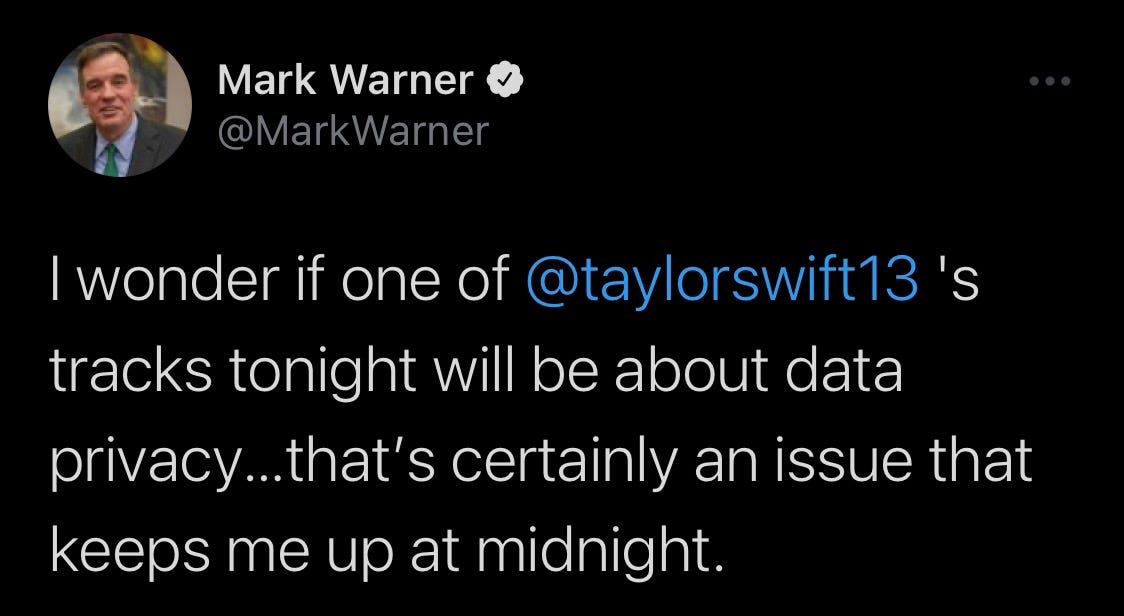There Are Three Things Guaranteed in Life: Halloween, Books, & Death
Or something like that. Boo!
Featuring clever ruminations on death, costume ideas, and yes: something about the new Taylor Swift album.
P.S. Like my newsletter? Make your friends sign up and feed my sense of self-importance.
Literally Just Something I Think Is Funny
Sort of cheap to you, the reader, but unfortunately this piece from now-passed-on writer Peter Schjeldahl about the art of dying made me laugh out loud a bunch of times. Sure he’s talking about having terminal lung cancer, but he’s also talking about his life and the small things that occur to you when you’re dying. Plus he embraces something I suspect many people who claim they want to die quickly will do when they’re told they’re dying: he doesn’t want to die so fast.
Here’s just one snippet that provoked a real guffaw from me:
Too much about my dad? Exactly! His charisma bleached the identities of his five children. I spent years of my childhood trying to win his approval and years of my adolescence trying to provoke his disapproval, until I had to accept that he didn’t care either way. When I told him on the phone, in 1998, that I’d been hired by The New Yorker, there was a long silence. Then he said, “Oh, you kids!”
Too little about my mother? Exactly again. My memories of her from my childhood amount to a uniform haze of bland niceness punctuated with flares of incomprehensible anger or tears and almost no sense of emotional connection. She was, and remains, a constant reader without a trace of intellectual curiosity. She tells everybody that she’s proud of me. I’m a credit to her.
And one more:
I regret my lack of the church and its gift of community. My ego is too fat to squeeze through the door.
A Less Serious Item (Halloween Costume Idea Lists I Enjoyed)
Happy almost-Halloween. Famously I’m a fan of the holiday (thank you, I am succeeding at being original!).
Here’s a Gawker round up of the most obnoxious pop culture things you could dress up as this Halloween.
Here’s a year-old Inquirer article featuring some great illustrations for Philly-specific Halloween costumes.
And if you really are looking for a Halloween costume, here’s a list from The Strategist with some pretty good ideas and some pretty egregious affiliate-linked pieces for each costume.
This Week’s Theme: What’s Everyone Reading These Days?
The first piece I have for you is a dive into the Booker Prize (formerly known as the Man Booker Prize), a literary prize given to a novel written in English that’s been published in the UK or Ireland — until 2014, when it was expanded to any novel written in English published anywhere (side note: people do NOT like that it includes America now). There is also an International Booker Prize, which was established later, that is awarded to books that have been translated into English and then published in the UK or Ireland. More generally and less literally, it’s a very flashy prize that brings renown, fame, and a typically life-changing boost in book sales for the authors who win it. Here’s author Bernardine Evaristo (who wrote 2019 co-winner Girl, Woman, Other) describing its impact:
Before the Booker she [Evaristo] had never been able to make a living purely from her fiction. Then came the prize, and, at 60, with her eighth novel, “everything that I could have wished for my career happened to me overnight”: stage rights and film rights sold; 50 translations on the way; a BBC Imagine documentary. The first Black woman to win, she found herself in demand to speak out politically. “Suddenly I was given a certain kind of gravitas, and respect and authority,” she said. Evaristo has become, one publisher told me, “the interviewee, the interviewer, the chair of this, the face of that”.
The article explores how the prize is decided (the most recent judges had to read 158 books in one year), the (weirdly complicated) rules of how long-form fiction works can be submitted for the prize, the prize’s cultural impact, and the role the prize plays in a literary world where it’s harder and harder to have people pay attention to your book. It also dips into how gossipy and dramatic the announcement of the prize has been over the years, including one grumpy author who demanded to know if he’d won or not before attending the ceremony.
And leave it to the literary to deliver such anecdotes:
Film critic and novelist Anthony Quinn, a judge in 2006, picked up an endurance tip from novelist Sebastian Faulks – you read leaning on the kitchen counter, on which you have placed a knife pointing bumwards. If you drop off, the knife will stab you awake and you continue reading. One of his fellow judges that year, novelist Candia McWilliam, recounted in her memoir that she went blind with blepharospasm, a condition in which the sufferer cannot open their eyes, immediately after finishing the Booker reading. Correlation, of course, is not the same as causation; either way, her condition had to be carefully covered up at the prize dinner. “The hilariousness of a blind judge for a literary prize already buffeted by vulgar attention might have done an indignity to the prize or its sponsors,” she wrote.
The other piece I have for you is about the New York Times bestseller list, which didn’t start counting paperbacks until the year 1976. The article explores the differences in paperback and hardcover printings and how even bestseller lists are affected by the editorial decision of how to count how many books have been sold:
In publishing history, the distinction between paperback and hardcover formats is also a distinction between markets. In the early days of the New York Times list, hardcover novels were primarily sold at bookstores, which catered to relatively wealthier and more urban customers. Paperbacks, meanwhile, were sold at a variety of different outlets, including newsstands, drugstores, and, eventually, supermarkets. These books were accessible to a much wider audience, due to both their more affordable prices and their greater geographic availability.
But, for decades, those more accessible books were not tracked by the New York Times. The fact that this list exclusively tracks hardcover sales at bookstores means it necessarily won’t reflect the popularity of other books: that is, those that sold in large numbers as paperbacks at nontraditional outlets.
A normal guy who loves books. Just like me.
Politics (& Death)
This excellent Verge piece from Eleanor Cummins (friend of the links!) about one of the first human composting facilities is a great overview of a new development in the ever-expanding ouevre of “stuff we can do with our dead bodies.” The piece takes a look at the company Return Home, which does human composting totally in-house (a two month-process) and you may have heard about on TikTok, and includes a very cool graphic that showcases the entire composting process. I won’t spoil the whole step-by-step, but apparently a composted human body could get you 400 pounds of soil that you can use to “grow a tree, nourish a house plant, or support a garden.” The length of the process has also allowed some families more time to grieve their loved one than the usual hectic few days a funeral takes.
A Celebrity Thinger (Feminisms, etc.)
This interview with Elizabeth Banks that ran in the Times about a month ago is very good. She gets (appropriately) grumpy with the interviewer who keeps essentially asking her “what’s it like to be a woman in Hollywood?”. It’s rare to read an interview where it feels like a celebrity is being frank! And this is one of the rare ones!
Flop Links (Justin is BACK)
Hello internet mess enjoyers! To start off Flop Links this week, I wanted to quickly address allegations that I alone started about myself in the last issue. To completely come clean, I was a sophomore in high school when I was listening to Kesha’s Cannibal EP, and was actually not in the third grade. To all that were concerned, I am Not Exactly Sure why I specifically chose third grade, but as Rupaul probably once said, as gay people we get to choose our families and our own personal versions of the truth. Anyway, let’s get into some flops!
Midnights and Mid Tweets - With every huge pop girl album release comes a massive influx of twitter personalities trying to get their hit tweet in while the iron is hot. The results of this are usually mixed at best, but when it comes to Miss Taylor Alison Swift, we tend to see the worst of the bunch. This time around, she seems to be a lightning rod for rabid pop music stans, desperate politicians, and gay men who wear That Shirt. Though Midnights itself will likely outsell every release this week combined and completely ~slay~ at doing capitalism, here are some of the floppiest tweets from its release week that made me ask: why am I on this app?
Whatever Happened to Being Great and British? - Netflix’s comfort TV staple and pro-Britain propaganda machine for exhausted corporate millennials, The Great British Bake-Off, recently did something that was not great, not British, and not really in the baking realm, by having its contestants take on Mexican cuisine (including tacos because sure why not?). To nobody’s surprise, the results were not great, which this Twitter thread has summarized for those of us that also have trouble looking away from car crashes. Though most contestants and judges suffered from a profound lack of knowledge about cooking Mexican food as a whole, it was the two hosts that brought in an extra dose of intentional cringe by spouting off tasteless comments about Mexican culture, with no obvious comedic goal in mind: at one point, the two wonder aloud, “is [Mexico] even a real place?”
For those that cling to this show for some sense of comfort and peace during their five-to-nine, this was a tough one! Ideally, this was a one-off, grossly misguided decision that they’ll try to steer clear of in the future. More likely: this was an all-press-is-good-press attempt at getting us online folks chatting and clicking and posting — which worked because here I am doing all of that.
That’s all I have room for this week!
P.S. Though I’d like to get into the real Triangle of Sadness (my shorthand for the evergreen Wilde-Sudeikis-Styles love triangle saga), I want to give it the time and space it deserves (but more-so because I feel there will likely be more content coming from this trio in the future). For now, here’s my favorite headline I’ve read about the unconscionable uncoupling.
A Recommendation (Classique, if you will)
Inspired by Lydia Tár herself, allow me to recommend the Elgar cello concertos as recorded by Jacqueline du Pre in 1967 with the London Symphony Orchestra.
Acting with a capital A, etc., etc.
P.S. A correction: last time I recommended the sketch show Sherman’s Showcase, which still stands, but I claimed there were 15 episodes of it. That was a lie. There are 8 episodes on Hulu and a second season that just premiered on 10/26 on IFC that will have six episodes. My bad! I lazily looked at the number of episodes on IMDb and have learned my lesson!
The Interactive Bits (Interact with me!)
Want more of Cassandra’s Good Links content? Upgrade to a paid subscription here ($5/month or $50/year).
Have a link you think is good? Submit link suggestions here.
Want Good Links merch? Order merch (postcards/stickers) here.










